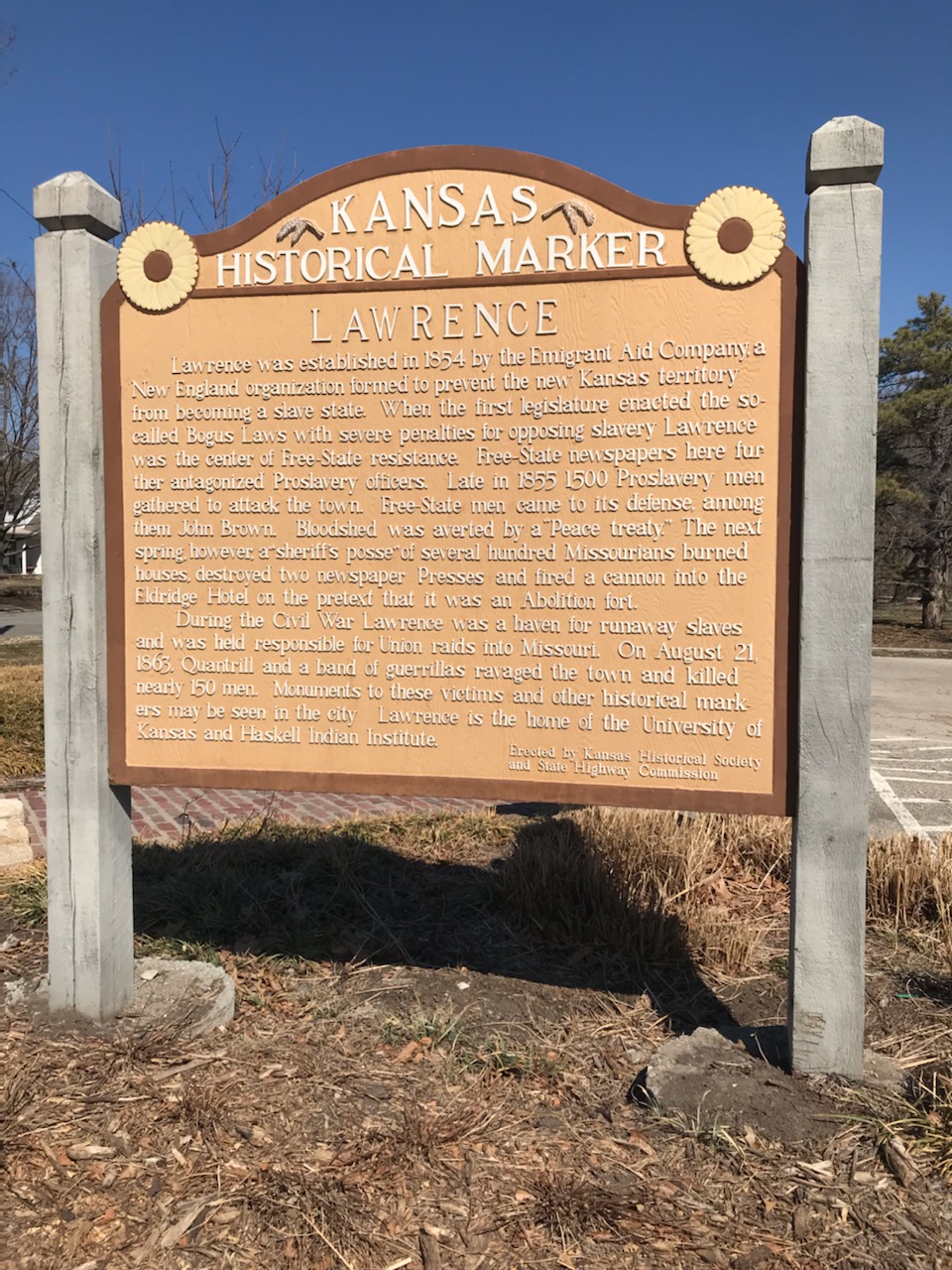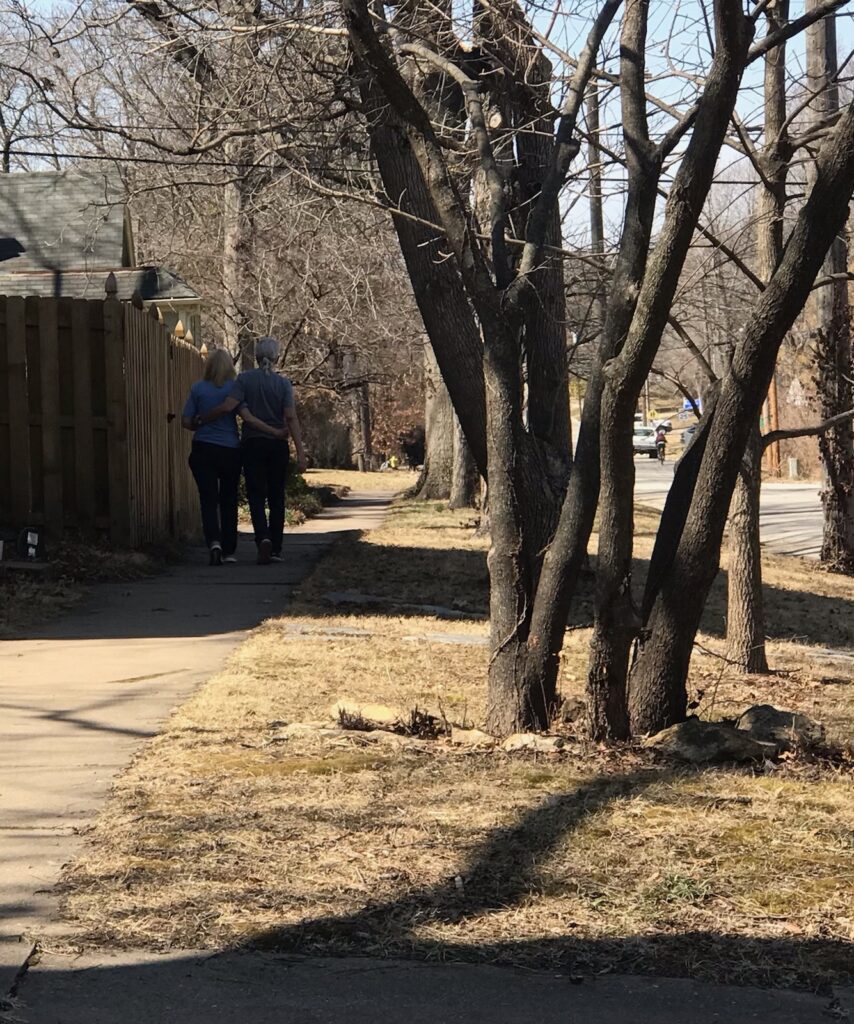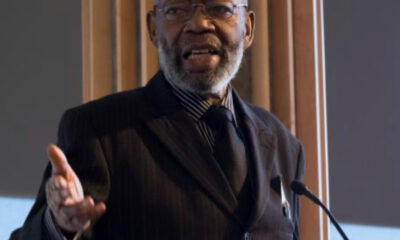Featured
How The State Of Kansas Helped Win One For America’s Abolitionists

On a warm March morning as the college town of Lawrence, Kansas, marked Spring Break and the winning streak of the University of Kansas men’s basketball team in the NCAA’s seasonal madness, John and Mary Kaye Shobe strolled their city’s historic district. They reflected on its pivotal role in the antislavery movement leading up to the Civil War.

“Both of my grandfathers were Union soldiers,” said John. “They left their families in Lawrence, went to fight the war, and I think one of them … his wife died, and he had to come back and take care of his kids.”
The couple divides their time between two states, but they say Lawrence represents “tolerance, diversity.” And its throughline to justice began when taking a position supporting freedom for the enslaved often required extreme sacrifice.
“I appreciate the sense of history and the positive history we have in this area due to the efforts of people helping people who needed and deserved the help,” Mary Kaye added. “They sacrificed, this area sacrificed a lot of human lives – both white and Black were sacrificed here. And I feel that.”

The Strobes pointed to the nearby Kansas river which they had walked along earlier in the day – a pathway to freedom for many enslaved willing to risk their lives by running away from Missouri and crossing it.
Where It Began
During the mid-19th century, abolitionists living in Massachusetts set their sights on Kansas, viewing it as the battleground on which to wage a war against the westward expansion of slavery. They formed an organization called the Emigrant Aid Company with Eli Thayer, who later became a Massachusetts Congressman, leading the effort. The state of Massachusetts chartered the company and antislavery emigrants moved to the Kansas Territory in 1854. Their goal, in part, was to build homes and stores but much of their financial goals were not realized. Instead, they had a major psychological influence on Missourians who wanted Kansas to join the United States as a slave state.
Missouri residents known as “Border Ruffians” were adamant about extending slavery and moved to Kansas to advocate for the institution amid the debate on popular sovereignty which allowed the population of a state to determine its formal stance as free or slave. In the years between 1854 and 1859, dozens were killed as pro-slavery and anti-slavery residents engaged in bitter fighting that became known as “Bleeding Kansas.”
As the Kansas Territory moved closer to statehood, the country moved closer to Civil War. Congress was deadlocked on the status of Kansas when, in 1861, seven Southern states seceded from the Union. The senators from those states were expelled, breaking the stalemate, and clearing the way for Kansas to enter the country free of slavery. The House of Representatives had already voted to grant statehood without slavery.
Honoring The Ancestors
The uptick in division in America played out violently and on a global stage January 6, 2021. And while the first parade of a Confederate flag through Statuary Hall left most astonished, the fissures in the nation’s obligation to honor its Constitution across demographic differences have been there for centuries. Now, many Americans like the Shobes are studying their families’ history and the places they call home.
Mary Kaye Strobe gestured at the stately homes lining the streets, pointing out the timeless architecture.
“I thought, ‘We will celebrate approximately 175 years in establishing this area soon – within the next 10 years.’ And I really hope it will bring our community together totally to share that history because it is a shared history.”
John explained, “My wife has done a lot of Ancestry.com, and we’re finding great-great grandparents buried in Lawrence, we’ve had a lot of fun going out to the cemetery because you can find that somebody says, ‘Oh, they’re buried in section 7.’ Well, finding that marker is quite challenging. The interesting part of that is I never could quite figure out why my parents never talked much.”
What Shobe’s parents heard from their ancestors may have been too painful to recount. But it is recorded in the history books and the tradition of a college town with a reputation for winning at more than sports.

-

 Featured10 months ago
Featured10 months agoCalifornia Is the First State to Create A Public Alert for Missing Black Youth
-

 Featured10 months ago
Featured10 months agoAfrican American Leaders Stay the Course Amid Calls for President Biden To Bow Out of Race
-

 Featured10 months ago
Featured10 months agoThe Debate Fallout Lands on Both Candidates
-

 Featured9 months ago
Featured9 months agoPresident Joe Biden Decides to Withdraw from the Presidential Race
-

 Featured9 months ago
Featured9 months agoIn One of His Final Speeches as President, Biden Says It’s Time for ‘Fresh Voices’
-

 Featured10 months ago
Featured10 months agoPresident Joe Biden Describes Shooting of Donald Trump As ‘Sick’







